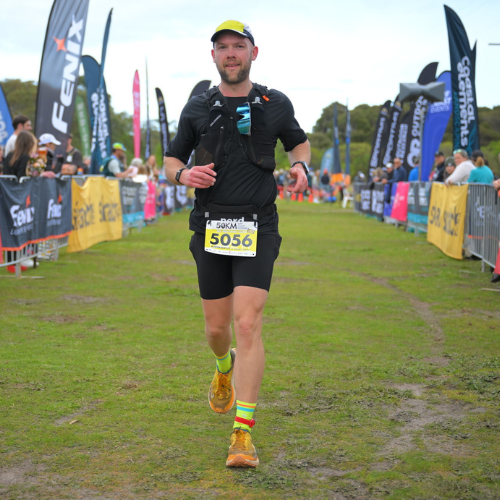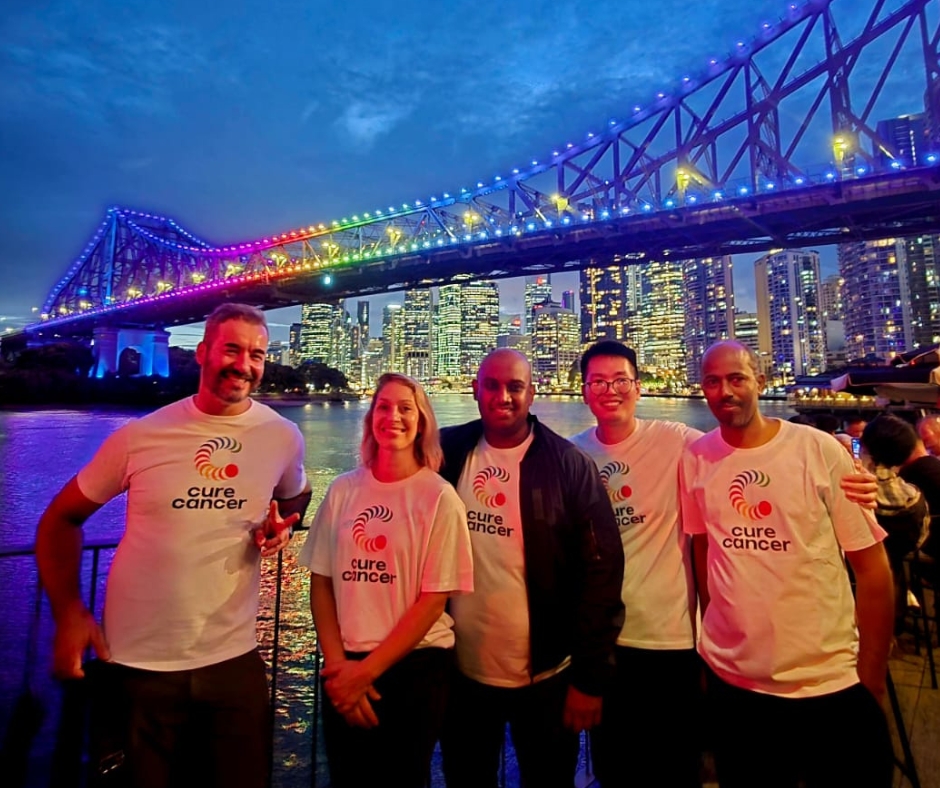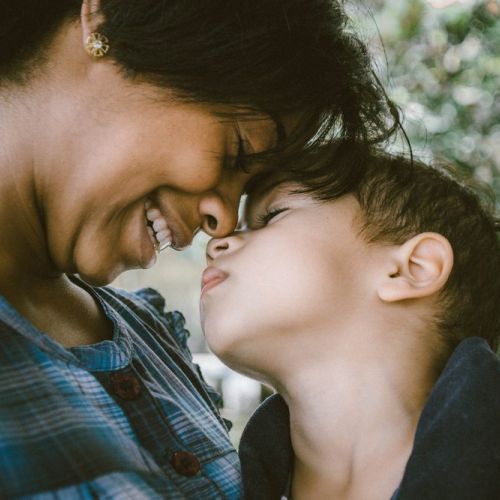‘I still have scars that will never go away’: Prof Francine Marques’ ovarian cancer story
By Sylvia Lee | 14 March 2025
Prof Francine Marques was only 31 years old when she faced a devastating diagnosis: stage 3 ovarian cancer. 10 years on, she has no evidence of disease and is now a mum to a two-year-old daughter. A passionate advocate for greater awareness, she shares her journey with Cure Cancer.

Prof Francine Marques with her partner, Ian. Image: Supplied
Known as a ‘silent killer’, ovarian cancer is the deadliest reproductive cancer. With no early detection test and vague symptoms, 7 out of 10 patients are diagnosed at a late stage, where 5-year survival rates fall from 49% to 29%.
Professor Francine Marques is one of the lucky ones. 10 years ago, her life took a devastating turn when she received news that no one is prepared for: stage 3 ovarian cancer.
At just 31 years old, she had her medical research career ahead of her. A cardiovascular researcher, she specialised in primary prevention and was always the friend who led a healthy lifestyle and encouraged others to exercise and eat healthier.

Like many patients, she had experienced subtle symptoms like pelvic pain, which she never connected to an insidious disease. It had been a stressful time of year for researchers, so naturally, she assumed it was related to her period.
After an ovarian cyst was found during a routine check-up in her home country Brazil, Francine’s sister, a gynaecologist, urged her to monitor it closely. Almost two years later, her doctor discovered a larger cyst on the other ovary and advised her to repeat the ultrasound in six months.
But her sister insisted on having it removed immediately, and Francine, knowing how much the news of their father’s cancer diagnosis weighed on her, agreed to undergo the keyhole surgery. Her sister’s instinct would later prove to save her life.
A medical researcher becomes an ovarian cancer patient

Image: Supplied
Waking from her surgery, Francine’s life changed in an instant when her sister told her, “It's not just a cyst. We're not sure what it is, but you're not going back to Australia next week.”
Days later, her pathology results confirmed the devastating truth. "I did all the things that we consider ideal for cancer prevention and still had a stage 3 ovarian cancer diagnosis at 31 years old,” she says. “The cancer prognosis and uncertainty about life or death were also difficult."
Within a week, Francine underwent a total hysterectomy that induced surgical menopause, taking away her ability to carry a child. “In terms of family planning, my husband was my boyfriend at the time, so having to tell him about it was emotionally difficult because nobody owes you anything," she reflects.
Beginning six gruelling rounds of chemotherapy also came with its own challenges. “Losing my long hair was really tough, and I had to start my new job three days after I started chemo. I sat down with my new supervisor and HR, and told them, ‘I can’t work full-time because I'm going to do chemo for the next 6 months.’”

Image: Supplied
Because her mother, too, had gone through stage 1 ovarian cancer only a few years prior, she felt she couldn’t speak to her about her diagnosis out of fear she would be filled with guilt. Heartbreakingly, her father was also undergoing treatment for stage 4 liver cancer. They underwent chemo at the same time every week, facing the debilitating side effects together.
“It was hard at every single level,” she says. She is painfully aware that had it not been for her sister’s advocacy, she would not be here today.
“If I had waited the 6 months that the gynaecologist wanted me to wait to repeat the ultrasound, I probably would have collapsed one day on the street and found out I had 4 weeks to live.”
One of few survivors: Gaps in ovarian cancer treatment

Image: Supplied
Like many diseases that disproportionately affect women and people assigned female at birth, ovarian cancer has been historically overlooked, misdiagnosed, and underfunded in research. Consequently, the mainstay treatment for ovarian cancer has remained largely unchanged since 1992.
“My mum had the same treatment as me, and I was incredibly lucky to actually respond to treatment,” she says. “The key issue is that we're still giving women the same treatment that we have had for decades, and it's a treatment that usually puts women in remission. But the vast majority have a recurrence within the first year or within the first five years.”
“If this was a men's cancer, treatment would have changed significantly as it has for prostate cancer,” says Francine. “We can't do that without having more funding for research.”
Besides her mum, Francine only knows of one other person who is a long-term ovarian cancer survivor. “Everybody else I met that got diagnosed at the same time as me is now dead, and that’s a really hard reality,” she says.
Francine notes that having few ovarian survivors means there has been less momentum in advocacy for further awareness and funding compared to cancers like breast cancer, which has seen a significant improvement in survival from 77% to 92% in the last 30 years.
10 years on: Becoming a mother and ovarian cancer advocate

Image: Monash University
Today, Francine is approaching the 10-year anniversary of her ovarian cancer diagnosis. She has become a mum, through egg donation and surrogacy, to a beautiful two-year-old daughter, and now leads the Hypertension Research Laboratory at Monash University.
A passionate advocate for ovarian cancer awareness, she sits on the Ovarian Cancer Research Foundation consumer panel and has been a consumer advocate on several projects led by her friend and colleague, Dr Jessica Holien, a Cure Cancer-funded ovarian cancer researcher.
Despite a cancer recurrence scare last July, Francine still has no evidence of disease – but she says that even though life moves on, survivors will always be surrounded by reminders of the toll of ovarian cancer, and the possibility that it could come back.
“I'm a 10-year survivor now, but some patients still have recurrences this late. It's still very stressful every time I get my blood collected. My veins are still really bad because of the cancer treatment, and I have to do that every 6 months.
"There are a million reminders to every single aspect of my life that I had cancer. People around you forget and move on because your hair grows back and perhaps you don't talk about it all the time.
“But we don’t forget. I still have scars that will never go away – that I have to look at every single day.”
Every 8 hours, we lose a mother, daughter, sister, friend to ovarian cancer.
You can change this by supporting cutting-edge research that aims to detect cancers earlier, develop more effective treatments, and ultimately save lives like Francine’s.










